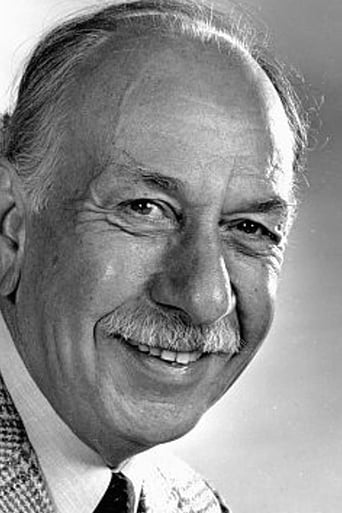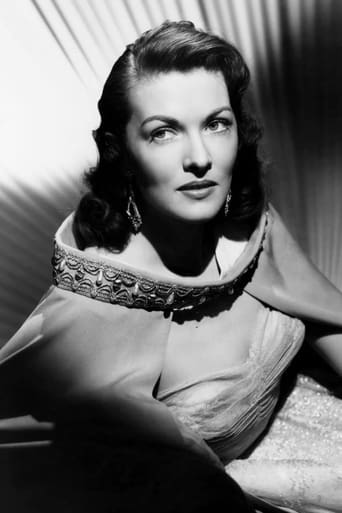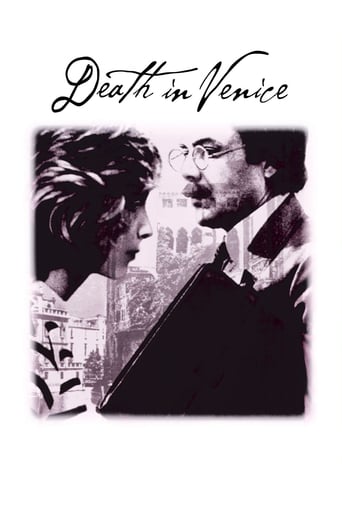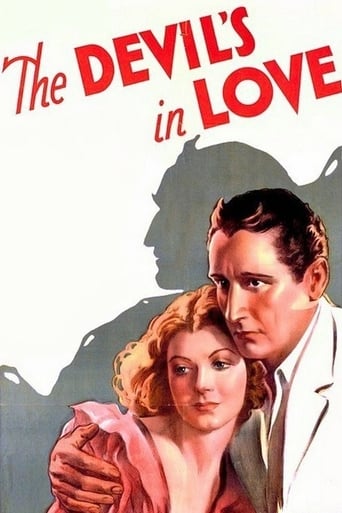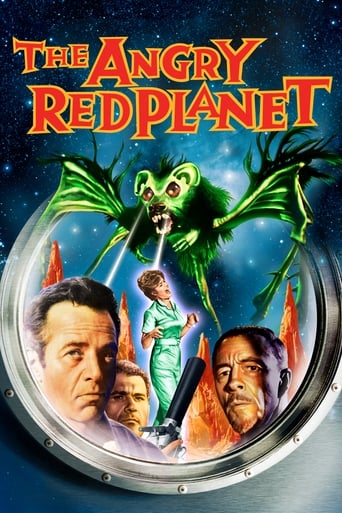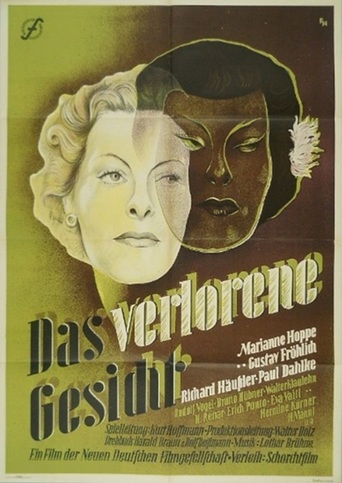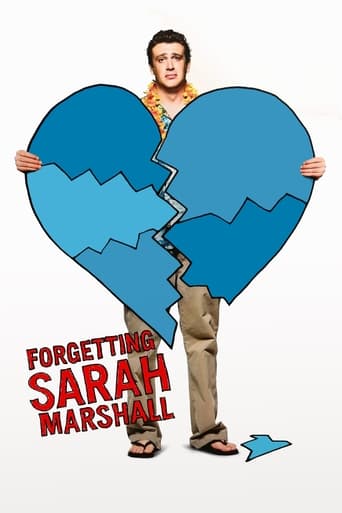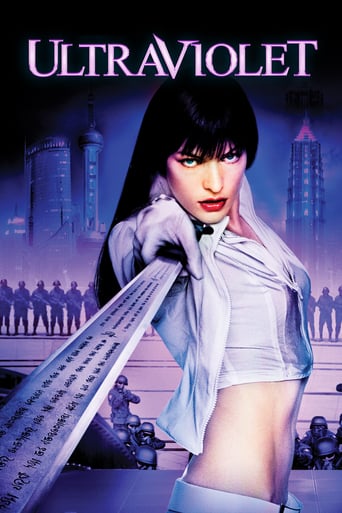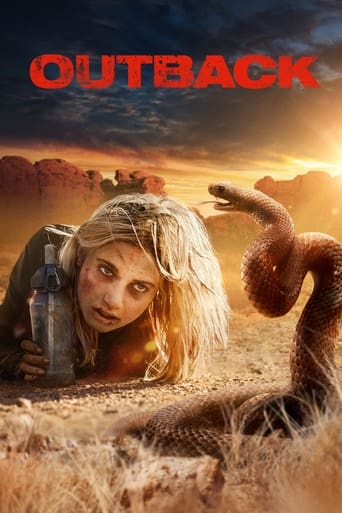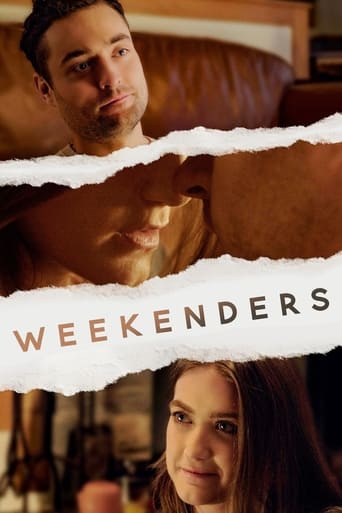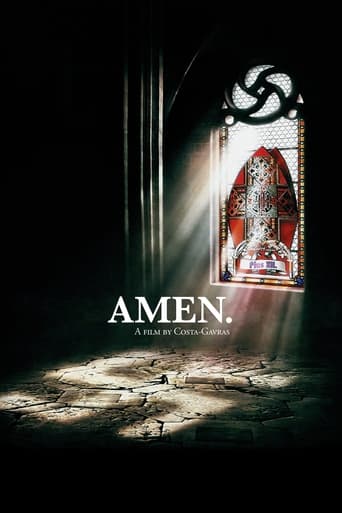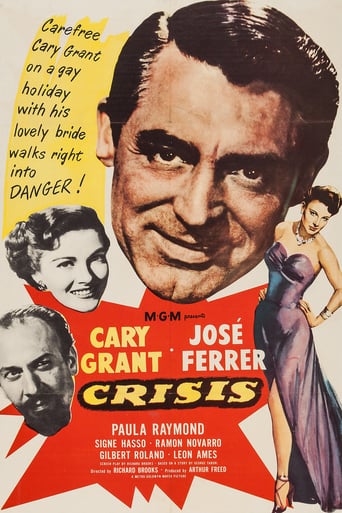
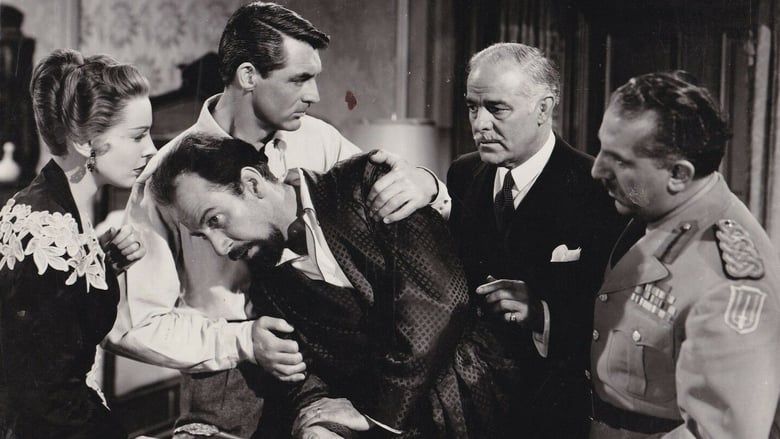
Crisis (1950)
An American doctor gets caught in the middle of a revolution when he's forced to operate on a South American dictator.
Watch Trailer
Cast


Similar titles
Reviews
Surgeon Cary Grant and his wife Paula Raymond are vacationing in some South American country when they are kidnapped by the military police and taken into the mountains. There they are told the country's dictator, José Ferrer, is in need of an operation to remove a tumor. Grant reluctantly agrees but then his wife is kidnapped by revolutionaries who would like to see Ferrer dead.Hollywood types have always had a fascination with the politics of Latin American countries, their dictators and rebels. This was especially true in the 1950s. So I'm not surprised this was made. I'm also not surprised it flopped at the box office. It's the directorial debut of Richard Brooks, a director who I believe made it farther having friends in high places than any appreciable degree of talent. But I suppose that's true of many directors, actors, etc. even to this day. Grant does fine here but the film is so serious and monotone that it removes many chances for Grant's charisma and personality to shine through. There are a couple of quips here and there that stand out against the rest of the movie's drabness. Paula Raymond is pretty but wooden. José Ferrer is very stagy. Signe Hasso, Leon Ames, Gilbert Roland, and Ramon Novarro are all fine in supporting parts. It's not a bad movie of its type, just ordinary and dull. Not the kind of movie a Cary Grant fan will likely expect.
Crisis represents yet another attempt by Cary Grant to break away from his light leading man image and do something with more drama. His last attempt was None But the Lonely Heart which got great critical notices, an Oscar nomination for him and died at the box office. The public just didn't want to see him in stuff like Crisis.The film is one of a very few non-musical productions by Arthur Freed at MGM. And the original story was intended for Spencer Tracy who was to be a neurosurgeon traveling in Latin America with a 10 year old daughter. The powers that be decided a little romance was needed so Tracy was substituted by Grant and he was given a wife played by Paula Raymond instead of a daughter.He's a neurosurgeon and when the powers that be discover him in their country he's brought to the presidential palace to operate on Peron like dictator Jose Ferrer. Then the rebels capture Paula Raymond and Grant's got a dilemma.Signe Hasso who was cast in the role of the first lady bears more than a passing resemblance to Eva Peron does the best job in the film. Cast in Latino parts are such Hollywood Latinos as Raymond Novarro, Gilbert Roland, Antonio Moreno, and Pedro deCordoba. All perform well.Crisis marked Richard Brooks's directorial debut and he wrote the script as well. Unfortunately the same thing happened here as did to None But the Lonely Heart. Great reviews and it lost money. Brooks was established as a director though.
Sometimes timing of movies ruins a possible award - witness how two splendid films, ALL ABOUT EVE (about the underbelly of the theatre)and SUNSET BOULEVARD (about the underbelly of the movies) came out in 1950, and managed to keep each other from sweeping the Oscars that year (although both did share in the Oscars). Each had great actresses in performances of stature (Bette Davis and Anne Baxter as Margo and Eve, and Gloria Swanson as Norma Desmond) up for best actress - but it was the year for Judy Holiday for Billie Dawn in BORN YESTERDAY. That same year, this nice little political thriller came out. It told the story of political intrigue in Latin America, complicated by the failing health of a dictator, and how an American doctor is torn between the threats of the dictator's regime and of the local revolutionaries. Cary Grant actually had a non-suave role here - he had serious things confronting him, like his dislike of his prospective patient (Jose Ferrer) and fears for his wife. Richard Brooks in his screenplay looked at such figures as the Argentine Perons (Signe Hasso plays the dictator's wife, like a clone of Evita), and notes the huge statues and pictures of the dictators - an early observation of what we call "the cult of personality". Ferrer is properly despicable, as a man capable of any act of violence for advantage, but also sickly due to his brain tumor. He also occasionally brings out points that pure democracy fans do not like to discuss: as he tells Grant Americans are perfectly willing to patiently stand in line for purchasing items or seeing movies, but in his country after a few minutes people standing in line start fighting and rioting. The opposition to Ferrer is little better than he is. Witness Gilbert Roland, who okays the kidnapping of Grant's wife, and once the dictator is dead starts telling Grant "These people are children who need a leader to tell them what to do." Someone disagrees with Roland, for he is shot by a sniper shortly after. The film ends with Grant sarcastically taking care of a panicking Roland and sneering at his political beliefs at the same time.It was ahead of its time in dissecting Latin American political reality. So why is CRISIS so little recalled, while other Grant thrillers (like NORTH BY NORTHWEST or NOTORIOUS - both by Hitchcock) are remembered. Not due to production or script or acting. Rather timing. In 1950 Douglas Fairbanks and Glynis Johns and Jack Hawkins appeared in the movie STATE SECRET. Set in a fictional Balkan country (supposedly Yugoslavia, but fictitious) a British surgeon is forced to take care of an ailing dictator, who undergoes a secret operation. But the dictator dies, and Fairbanks tries to flee the country aided by Johns. Almost the same type of plot (although a different part of the world). Both films deserve revival. And like ALL ABOUT EVE and SUNSET BOULEVARD, both checkmated each other's full effectiveness in that year of coincidences 1950.
This is Richard Brooks' first directorial effort. Examining the work half a century after it was made, the film presents a director who knows how to get the most from his actors through the written word and the way it is spoken. Three actors sparkle: Cary Grant, Jose Ferrer, and Signe Hasso.Compare Cary Grant's acting in the Hitchcock vehicles and in this. Grant presents a maturity in his speech patterns that do not show up under Hitchcock's direction. I think much of the quality of the performances is probably due to the director who took his first film seriously--probably a lot more than he did in his later career. All in all, this is a curious film--quite unusual in several ways compared to the average Hollywood products in the Fifties. Is it only a question of humanism winning over all evils? Or more?



